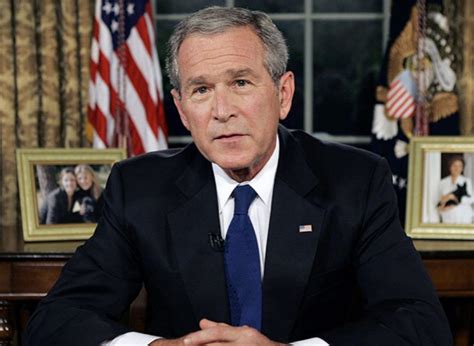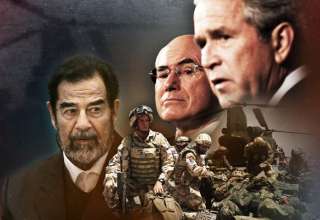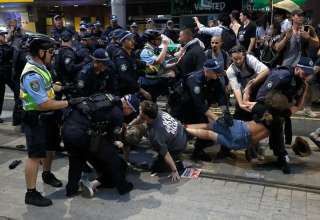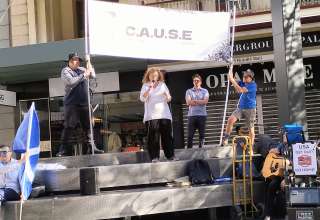By Art Museum Workers
On 19th of March 2003, then US President George W. Bush addressed the nation
that “American and coalition forces are in the early stages of military operations to
disarm Iraq, to free its people and to defend the world from grave danger.” On the
20th of March, then Australian Prime Minister John Howard announced that Australia
was to be involved in this coalition of military forces – “The Government has decided
to commit Australian forces to action to disarm Iraq because we believe it is right, it is
lawful and it’s in Australia’s national interest.” Twenty years later, we can reflect on
the results of the campaign “to defend the world from grave danger” with knowledge
of the fact that the lawfulness of the invasion was baseless – there were no weapons
of mass destruction in Iraq. As to whether it was “right” and in the national interest,
then perhaps it’s up for Australians themselves to consider the value of fighting
unjust wars in support of the USA.
The first decades of the 21st Century world have been completely shaped by
the so-called War on Terror. Just as the ideological ‘never forget’ slogan was utilised
by US war-mongerers following the attacks against the USA on September 11th, the
world must never forget the western coalition force’s catastrophic exit from
Afghanistan on 15th August 2021. The world also ought never forget how popular
support and opposition to the War on Terror took various political forms, such as
through the Stop the War Coalition, where activist groups and unions worked
together in opposition to the War on Terror. Anti-war sentiment was also carried
through less organised and more mainstream voices, where views towards our
military alliance with the US caused rifts within society and throughout popular
culture (for instance, recall even the backlash following Anthony Mundine’s criticism
of Australia’s support of the US operation in Afghanistan). The fact remains that
Australia has always followed the military decisions of foreign powers in the interest
of the British empire and US imperialism. Accordingly, anti-war sentiment and the
necessity for national independence can be identified as two of the fundamental
components of an ongoing people’s movement that draws together Australia’s
various voices of dissent.
Looking back over the twenty years since the announcements of the Iraq
invasion, it’s important to note that the people of Australia were not simply duped
masses who were unaware of the unjust basis of the conflict. Guerilla cultural
expressions of anti-war sentiment occurred contemporaneously with Howard and
Bush’s war announcements. Perhaps most notably, on the 18th of March, in the lead
up to Bush’s war broadcast, anti-war activists Dave Burgess and Will Saunders
climbed the Sydney Opera House to paint ‘NO WAR’ on the cultural landmark’s
largest sail. In a recent interview, Burgess said that while painting the slogan, he was
“just thinking about the imminent conflict and the number of people who were going
to die and how global politics would be changed forever for the worse as a result.”
Although one may cynically dismiss Burgess as a riled-up and reckless pacifist,
history has justified his concerns and actions. No official work of culture could have
achieved the immediacy and urgency of the anti-war message that drove Burgess to
climb the iconic Opera house — a shrine to Australian modernism. During his trial
Burgess said “This was a once-in-a-lifetime situation that we were trying to stop
some terrible thing happening by whatever means were at our disposal [sic]. Only
that building could have conveyed the message to the rest of the world that the
majority of Australians were against the war at the time”.
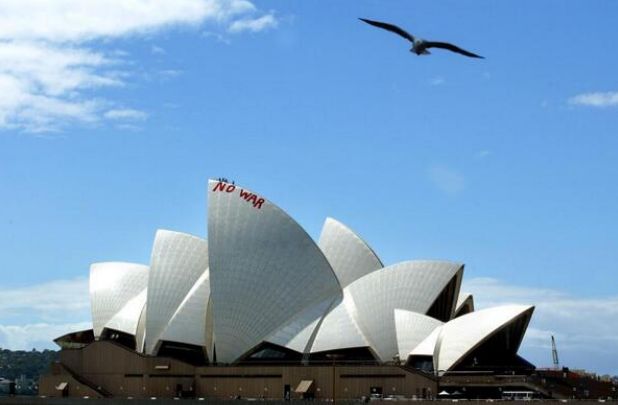
Aside from these grand stunts, there were less overt and spectacular
expressions of popular dissent and frustration concerning the dire geo-political
situation at the beginning of the century. As an integral part of counter-cultural
struggle, music served as an effective means of voicing anger against imperialist
wars. Australia’s punk and alternative music scenes were significantly vocal about
Australia’s involvement in the War on Terror, with some more popular examples
being Adelaide pop-punk band Kisschasy’s classic video clip for Opinions Won’t
Keep You Warm At Night and the punk compilation Rock Against Howard, which was
an Australian offshoot of the Rock Against Bush project. More grass-roots and
underground music cultures were also developing expressions of 21st century
political dissent. On the night following Howard’s announcement of Australia’s
involvement in another US war, metalcore band Parkway Drive performed their first
gig. Far away from Canberra, Washington DC and Baghdad, these five angsty
teenages took to the stage of the Byron Bay Youth Centre and marked the beginning
of one of the most popular and successful bands to develop out of the contemporary
Australian music scene. While the band’s commercial success story is widely
celebrated by official media (for example, see the ABC’s recent episode of Australian
Story that’s devoted to the band), what’s most significant is that the band’s roots
were formed within a set of social and cultural conditions where hopelessness,
confusion and frustration towards the world were common enough sentiments to
develop into an influential sub-culture of hardcore music.
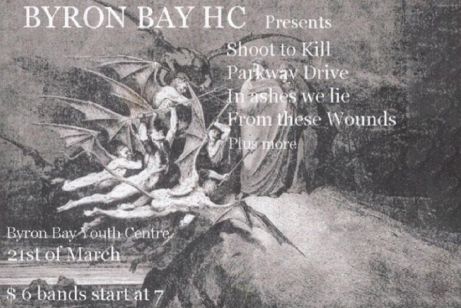
During the 2000s local hardcore/punk gigs were a regular occurrence within
Australia’s regional areas, especially throughout the east coast where
suburbanisation and uneven industrial development had produced conditions for
angry young people to seek creative ways to vent their frustrations. The gradual
proliferation of home computers and internet connections had allowed for networking
through shared musical and cultural interests on social media platforms like
MySpace. Young people shared pirated music and saved up for cheap musical
instruments through casual work at fast-food chains and supermarkets. Bands
rehearsed in parents’ garages, made demo recordings and performed self-organised
gigs at local youth centres.
For those unfamiliar with the subgenre and culture of hardcore, it is an
aggressive off-shoot of punk music (short, fast songs performed with hard-hitting
drums, distorted guitars and screamed vocals). Lyrics are focused on social issues
and the troubles faced by working/middle class youth. The subgenre of metalcore
fuses these hardcore elements with themes that are common to the metal genre,
such as gothic and romantic themes in lyrics, expressive instrumental performances
and heavy use of symbolism. Building on hardcore’s realist focus on concrete
experiences that shape suburban life, metalcore imports the larger-than-life,
melodrama and theatrics of metal to heighten the aggression of hardcore. In their
early years, the appeal of Parkway Drive stemmed from their hardcore roots, before
the band’s commercial success further developed with their more exclusive embrace
of metal.
It can be assumed that it was during Parkway’s first performance that the
band debuted their song “I Watched” (such an assumption stems from the fact that
this song would go on to be included on the band’s first release of recorded music in
May 2003). Considered in relation to the broader social and political conditions in
which both the War and Terror and Parkway Drive formed, the performance of “I
Watched” is significant. Aside from being a document of angry teenage boys in the
garage, the song’s lyrics express a profound confusion and despair amind the
post-9/11 and emergent War on Terror period:
In an instant
this world’s hate
engulfed all tenfold.
Hate.
I watched the birth
of tomorrow’s catchphrase
— Terror —
as the sky came crashing down.
True terror now assumes a human form:
Suspicious minds
pointing fingers
still ignore.
Suspicious minds
tear at innocence.
I watched the sky burn.
As the ashes fell
Time stood still
“I Watched” encourages listeners to critically reflect on the consequences of the
September 11 attacks against the USA and the fear that was manufactured by
governments and media. Hate had resurfaced as a real driver of events in the world;
the attacks expressed a violent hatred towards US imperialism, and, in turn, the West
opportunistically justified its own violent hatred through war against its perceived
enemies. Most Australians would remember the fear of terror that the Howard
government propagated through its $15m campaign titled, “Let’s Look Out for
Australia”, where advertisements informed us all to be “be alert, not alarmed”.
Encouraging suspicion towards everyday people, rather than suspicion towards the
government whose foreign policy decisions directly lead citizens to be at the risk of
violence (which lead to the occurrence of the Bali bombings, which were in direct retaliation to Australia’s military support of the USA and political interference in
East-Timor). The narrative regarding the threat of terror was succinctly outlined by
Parkway Drive in “I Watched”, as government propaganda had created an image
where “true terror now assumes a human form”. Anti-western “terror” served as a
scapegoat to point fingers towards and to blame as an evil cause of harm against
Western “innocence”. Parkway Drive turned this perspective upside down in order to
present the “suspicious minds” created by political messaging and advertising as the
true agents of terror.
“I Watched” provides a relatable perspective for young Australians who grew
up witnessing the development of a post-Cold War fear against a new enemy. The
simplified vision of geopolitics held that Soviet communism was no longer the
primary threat for the USA aligned world, and that a new enemy had emerged in the
form of religious fundamentalist terrorists and non-western ‘authoritarian’ states. In
2004, the year following Parkway’s first performance, the band released their first
collection of songs on an EP titled “Don’t Close Your Eyes”. This release included
their iconic song “Smoke ‘Em If Ya Got ‘Em”, the lyrics of which express a bleak
assessment of the 21st Century world:
Thoughts replaced by placid romance
Without movement, I can’t escape.
Searching through the static
twisted and torn inside of
such blinding visions of destruction.
So I have to question,
was this in the master plan?
‘Cause now a broken future’s all that we hold.
Broken.
Our broken future is all that we hold.
Our day draws
to its close.
Dusk
Washes away.
Integrity now bleeds away
As tired hearts are left to drain.
Do you see their faces when you fall asleep at night?
Now they’re nothing more than blood stained memories.
Blood stained memories.
Fuck it all.
In “Smoke ‘Em if Ya Got Em”, Parkway updated the pessimistic, punk-era outlook of
“no future” in response to the world of the War on Terror, where it seems that a
“broken future is all that we hold”. This hopeless perspective isn’t simply the view of a
depressed and melancholic individual – Parkway Drive provide a sober assessment
of reality shaped by war, media and politics: “twisted and torn inside of / such blinding
visions of destruction. / So I have to question, / was this in the master plan? / ‘Cause
now a broken future’s all that we hold.” Anyone who grew up surrounded by the
“blinding visions of destruction” that accompanied the so-called Operation Shock and
Awe ought to have questioned the US-led western “master plan” of fighting for peace
and freedom. Even though this reality drives us to want to give up and scream “fuck it
all”, these are our blood stained memories that mustn’t be forgotten.
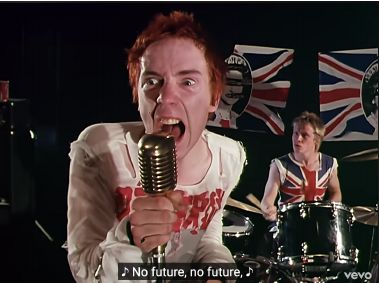
Screenshot from The Sex Pistols – God Save the Queen (1977)
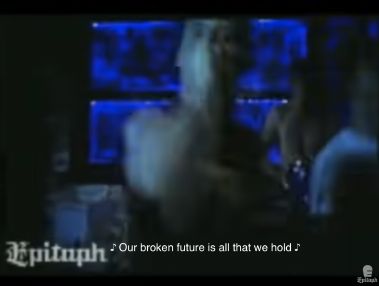
Screenshot from Parkway Drive – “Smoke ‘Em If Ya Got ‘Em” (2004)
Unfortunately, the broken future foretold by Parkway has become our broken
present; twenty years on from Parkway’s beginnings and the calamitous War
on Terror, Australia continues to commit its full support for US imperialism. On the 14th
March 2023, the anglosphere once again expressed its defence allegiance as
Australia, the UK and the USA — AUKUS — announced the plans for the production
and joint-operation of nuclear-powered submarines. Just like the baseless military
threat of weapons of mass destruction that was used to justify the invasion of Iraq,
the protection of US economic dominance and the “rules based order” against China
is being used as the new excuse for war.
Coincidentally, on the weekend following this AUKUS announcement,
Parkway Drive also performed in Australia for the first time in years. This time, the
band didn’t perform at the Byron Bay Youth Centre to a crowd of a few teens, rather
they played to tens of thousands of people at sold out crowds as part of a touring
metal music festival “Knotfest” (an event owned and operated by US band Slipknot).
Unfortunately, neither “I Watched” nor “Smoke ‘Em If Ya Got ‘Em’ were performed,
despite the continued relevance of their lyrics. Following the disastrous War on
Terror, there is a desperate need for artists in the present AUKUS-era to produce
relevant works in forms that connect popular dissatisfaction with the world to the
ongoing military actions by imperialist powers.

